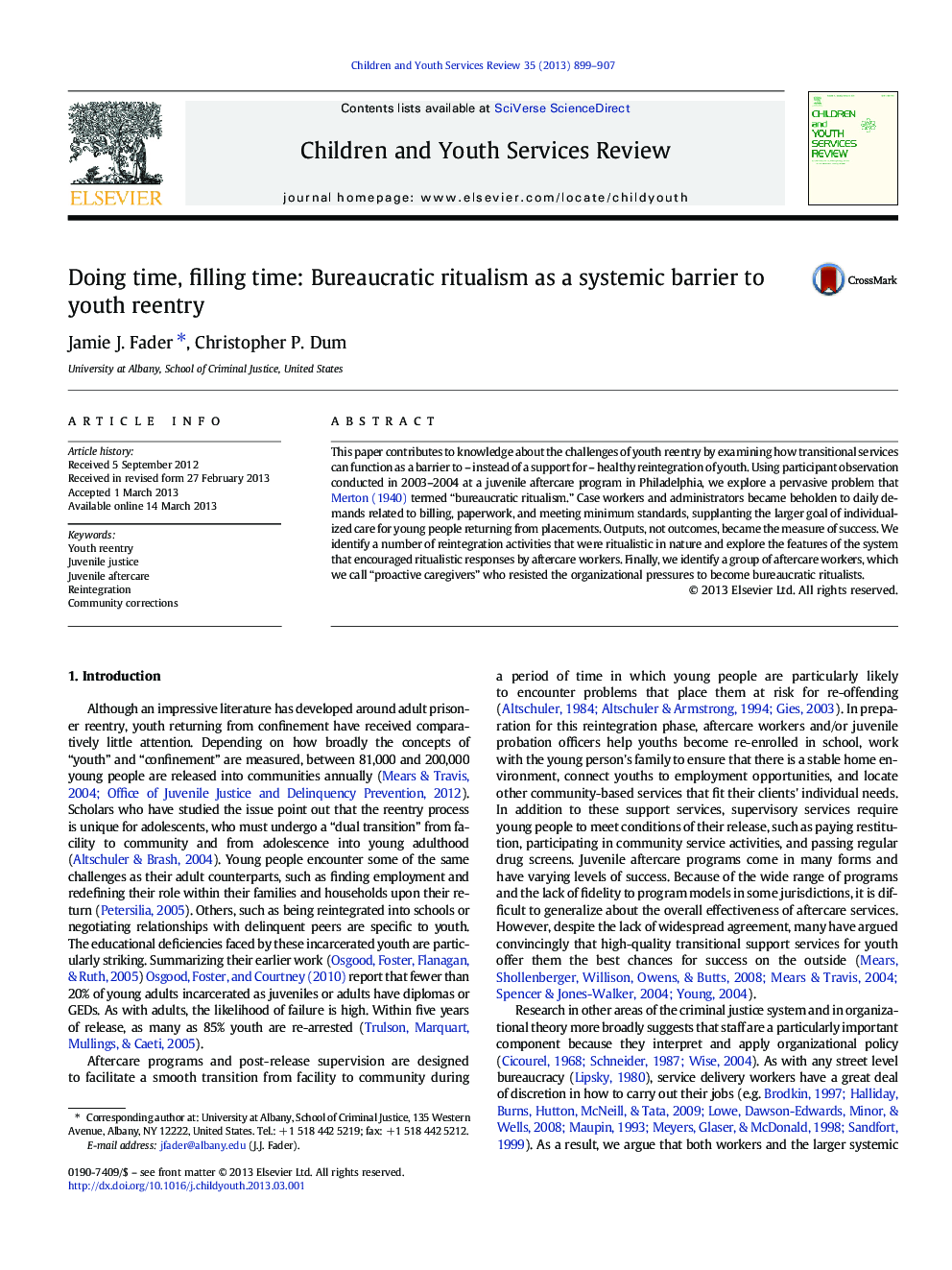| Article ID | Journal | Published Year | Pages | File Type |
|---|---|---|---|---|
| 346183 | Children and Youth Services Review | 2013 | 9 Pages |
•We conducted participant observation at “Powelton Aftercare.”•A pervasive problem in aftercare was “bureaucratic ritualism” (Merton, 1940).•Ritualistic activities were found at every stage of the aftercare process.•Four organizational conditions supported bureaucratic ritualism.•About half of the workers resisted, providing instead “proactive caregiving.”
This paper contributes to knowledge about the challenges of youth reentry by examining how transitional services can function as a barrier to – instead of a support for – healthy reintegration of youth. Using participant observation conducted in 2003–2004 at a juvenile aftercare program in Philadelphia, we explore a pervasive problem that Merton (1940) termed “bureaucratic ritualism.” Case workers and administrators became beholden to daily demands related to billing, paperwork, and meeting minimum standards, supplanting the larger goal of individualized care for young people returning from placements. Outputs, not outcomes, became the measure of success. We identify a number of reintegration activities that were ritualistic in nature and explore the features of the system that encouraged ritualistic responses by aftercare workers. Finally, we identify a group of aftercare workers, which we call “proactive caregivers” who resisted the organizational pressures to become bureaucratic ritualists.
